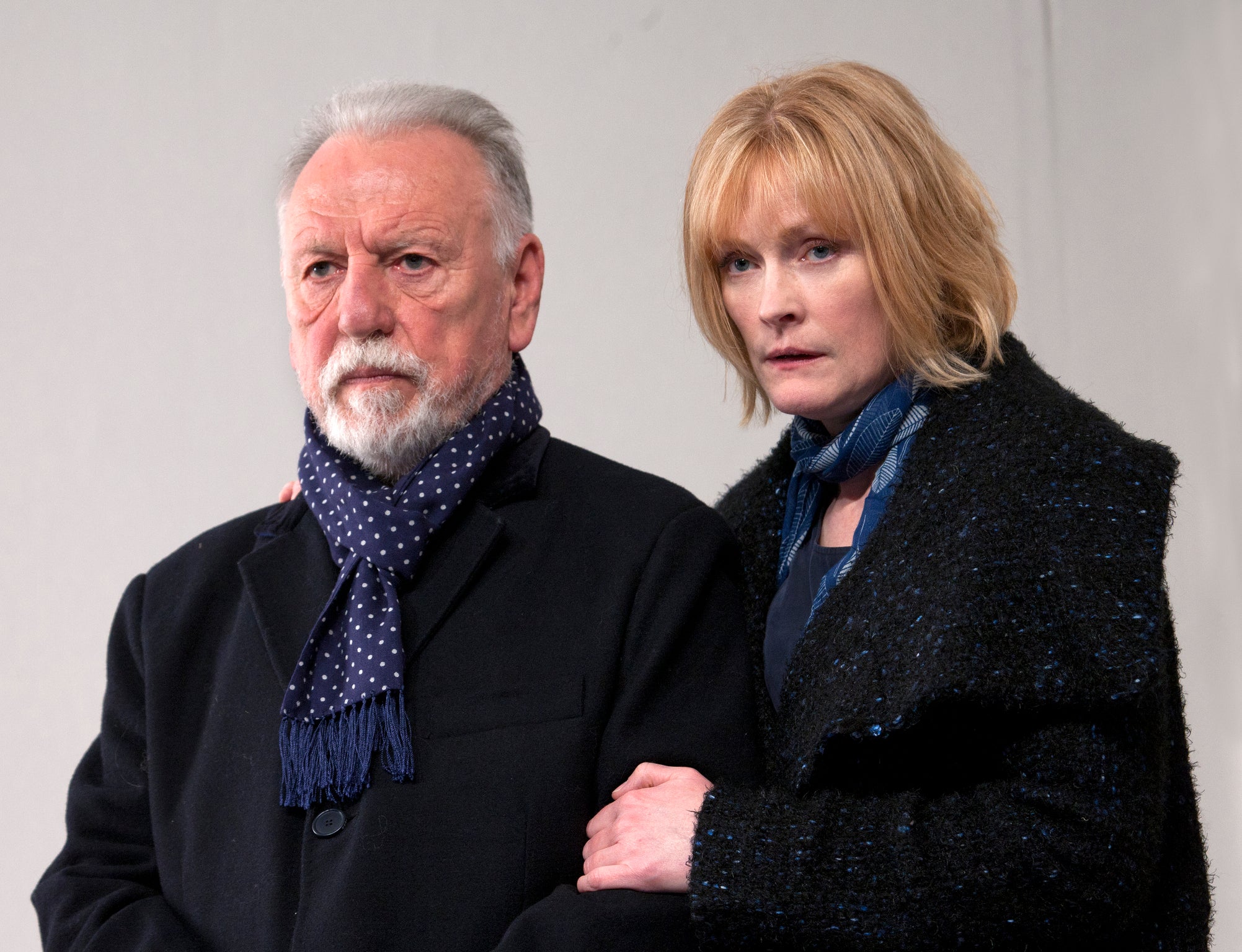The Father, Tricycle Theatre, review: a heartbreaking portrayal of old age
Florian Zeller's play is devastating and disorientating

If you're planning to see The Father - and read no further for assurance, you really should - come back to the reviews afterwards. The play creates a fruitful disorientation it's better not anticipate, though it's impossible to sensibly discuss the show without going into it. Here endeth the spoiler alert.
The play by French writer Florian Zeller - little known in Britain, though something tells me this production may prompt a rush of interest - is translated by Christopher Hampton, and transfers to the Tricycle from a star-garlanded run in Bath. Kenneth Cranham gives a terrific performance as Andre, an old man suffering Alzheimer's who’s alternately gruffly difficult, cheerily charming, and pitiably confused; Claire Skinner also excels as his wearied, worried daughter Anne who must decide how best to care for him.
Sounds straightforward, but the ninety-minutes will continually wrong-foot you. Characters contradict themselves - is Anne married, or divorced, or moving to London with her new boyfriend? Spaces morph - are we Andre’s flat or Anne’s flat? Phrases and conversations and mundane daily occurrences (eating chicken; losing a watch) repeat uncannily. A character comes on, and we don’t even recognise their face - Anne is be briefly played by another actress. Scenes divide and mutate till you’re not sure who or what or where you’re watching.
The Father is one of those plays that makes your brain hum with the unique potential of theatre: this is the perfect unity of form and content. Zeller’s writing, directed tautly here by James Macdonald, brilliantly takes us inside Andre’s mind. We experience with him the disorientation he feels, the ungraspability of events as memory swims loose. “It doesn't make sense,” he keens, and it doesn't always for us either.
The structure is effective, and clever for sure, but it’s not purely cerebral: it’s empathetic. We walk in Andre’s soft slippers. The Father reminds us of our desire to piece together a coherent narrative and rewards searching viewing, yet it’s no post-modern trick: it's when thwarting you that the story is most moving.
Although played initially naturalistic - Zeller’s writing has the convincing stop-start rhythms of speech - the shuffled characters, furniture, and supposed ‘facts’ of the narrative lend an unnerving air to proceedings. The relationships are also haunted by another, absent daughter. Meanwhile the two men in Anne’s life are strangely Pinteresque figures - smiles pasted over a creepy, creeping cruelty. Are they really untrustworthy? Or is this Andre’s paranoid perspective?
We spiral down with Andre, as his grip on his situation disintegrates, a Learish descent from authoritarian father to helpless madman. We feel for his daughter, yes - the dementia patient's deluded blame-apportioning and intractability, and how guilt-inducing and exhausting it can be for relatives, rings all too true, and Skinner gives a sensitive, understated performance. But even more heartbreaking is Cranham, who gives a beautifully fully-fleshed portrayal. “I feel as if I’m losing all of my leaves,” Andre tries to explain through tears, as Zeller leaves us with a final, evocative image.
To 13 Jun; tricycle.co.uk
Join our commenting forum
Join thought-provoking conversations, follow other Independent readers and see their replies
Comments